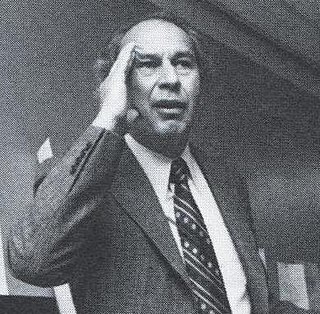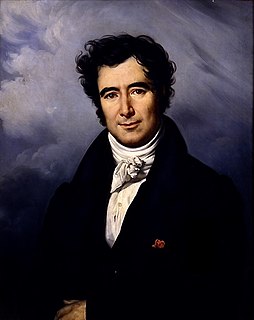A Quote by Lydia M. Child
Whoso does not see that genuine life is a battle and a march has poorly read his origin and his destiny.
Related Quotes
I do not remember anything which Confucius has said directly respecting man's "origin, purpose, and destiny." He was more practical than that. He is full of wisdom applied to human relations,--to the private life,--the family,--government, etc. It is remarkable that, according to his own account, the sum and substance of his teaching is, as you know, to do as you would be done by.
But if they are well-founded and just, they can be no less than the high requirements of heaven, addressed by the voice of God to the reason and understanding of man, concerning things deeply affecting his relations to his sovereign, and essential to the formation of his character and of course to his destiny, both for this life and for the life.
All work, the genuine work which we must achieve, is that which is most difficult and painful: the work on ourselves. If we do not freely take upon ourselves this pre-acceptance of the pain and torment, they will be visited upon us in an otherwise necessary individual and universal collapse. Anyone disassociated from his origin and his spiritually sensed task acts against origin. Anyone who acts against it has neither a today nor a tomorrow.
Friedrich Hayek, who died on March 23, 1992 at age 92, was arguably the greatest social scientist of the twentieth century. By the time of his death, his fundamental way of thought had supplanted the system of John Maynard Keynes - his chief intellectual rival of the century - in the battle since the 1930s for the minds of economists and the policies of governments.
When Eleanor's arm touched his he felt his hands grow cold with deadly fear lest he should lose the shadow brush with which his imagination was painting wonders of her. He watched her from the corners of his eyes as ever he did when he walked with her-- she was a feast and a folly and he wished it had been his destiny to sit forever on a haystack and see life through her green eyes.
I was often humiliated to see men disputing for a piece of bread, just as animals might have done. My feelings on this subject have very much altered since I have been personally exposed to the tortures of hunger. I have discovered, in fact, that a man, whatever may have been his origin, his education, and his habits, is governed, under certain circumstances, much more by his stomach than by his intelligence and his heart.
The dissident does not operate in the realm of genuine power at all. He is not seeking power. He has no desire for office and does not gather votes. He does not attempt to charm the public, he offers nothing and promises nothing. He can offer, if anything, only his own skin - and he offers it solely because he has no other way of affirming the truth he stands for. His actions simply articulate his dignity as a citizen, regardless of the cost.
Man is the product of causes which had no prevision of the end they were achieving; his origin, his growth, his hopes and fears, his loves and beliefs, are but the outcome of accidental collocations of atoms; no fire, no heroism, no intensity of though and feeling, can preserve an individual life beyond the grave.
The challenge of abating one with a genuine ego problem is to not try to put him down. Any and all antagonization, in his mind, is merely compensated for by his own descriptions: his feelings of persecution by the envious and his ideals of worth. Arguably, the genuine ego is more of a circumstantial defense mechanism rather than a steady arrogance in need of starvation.






































